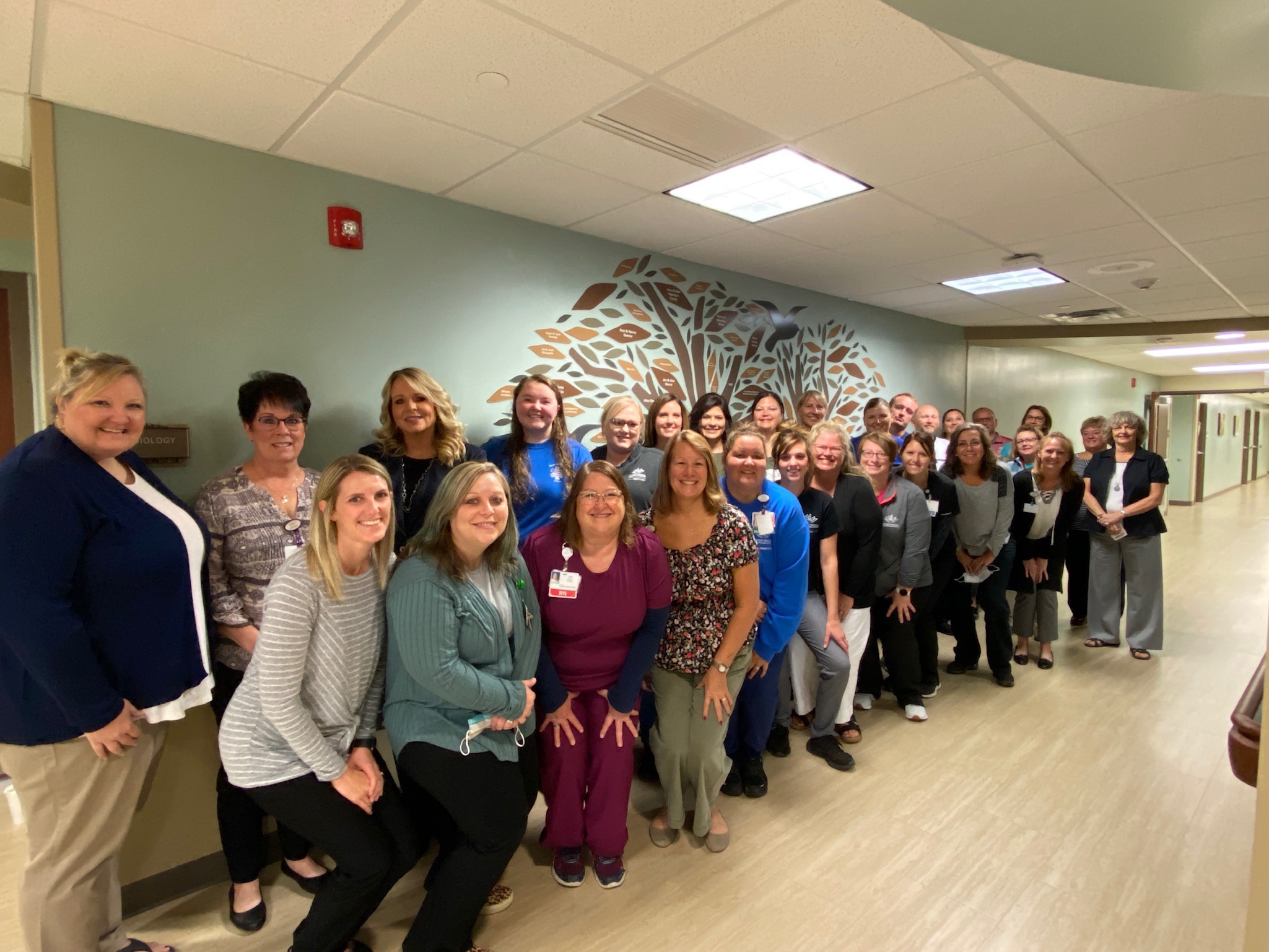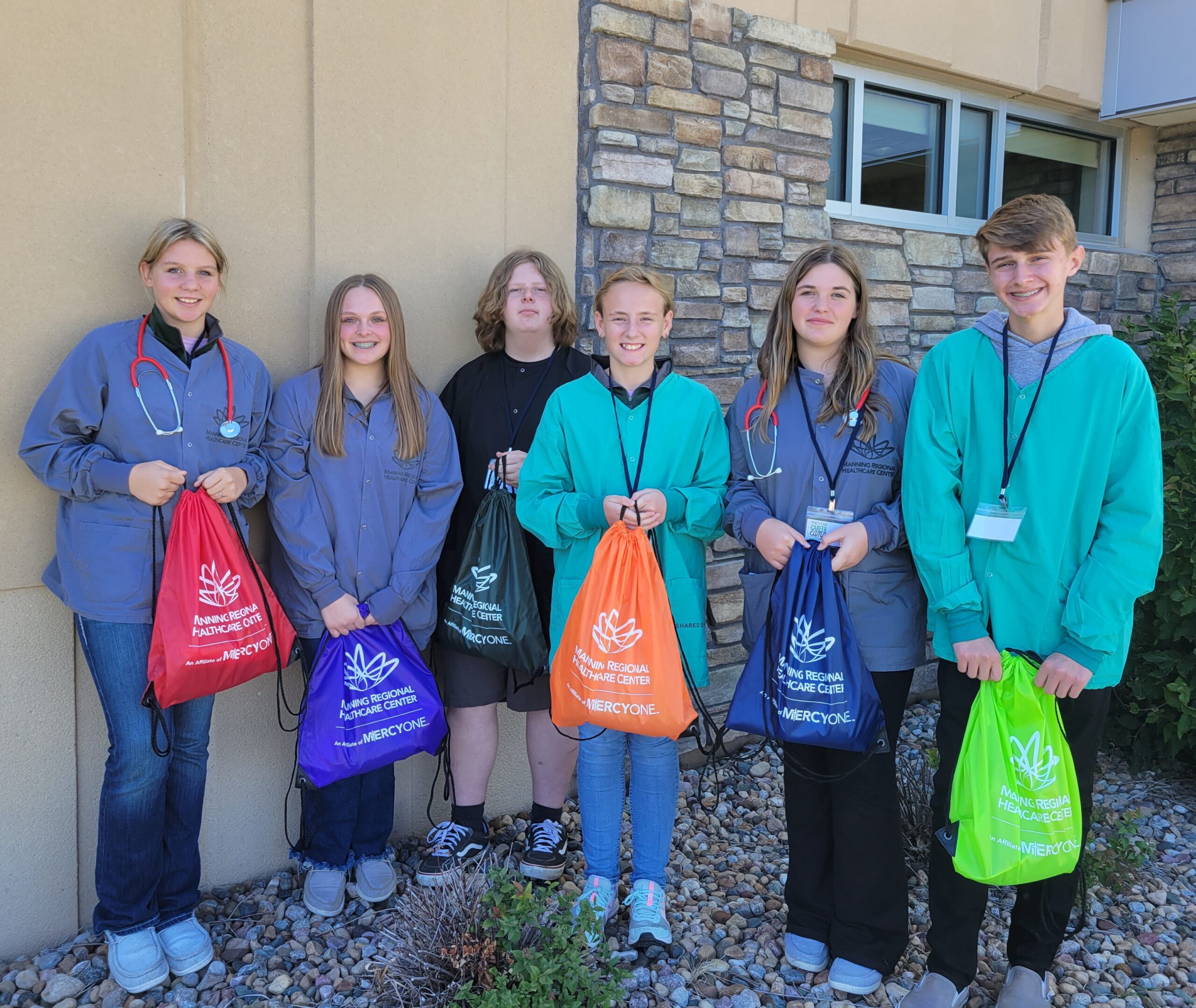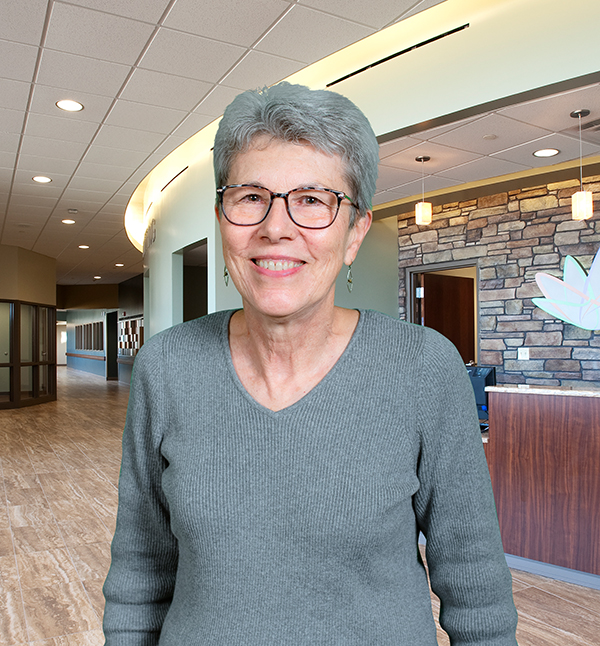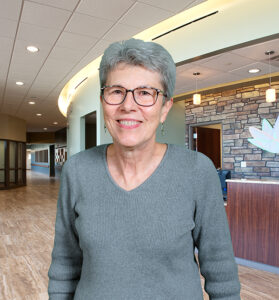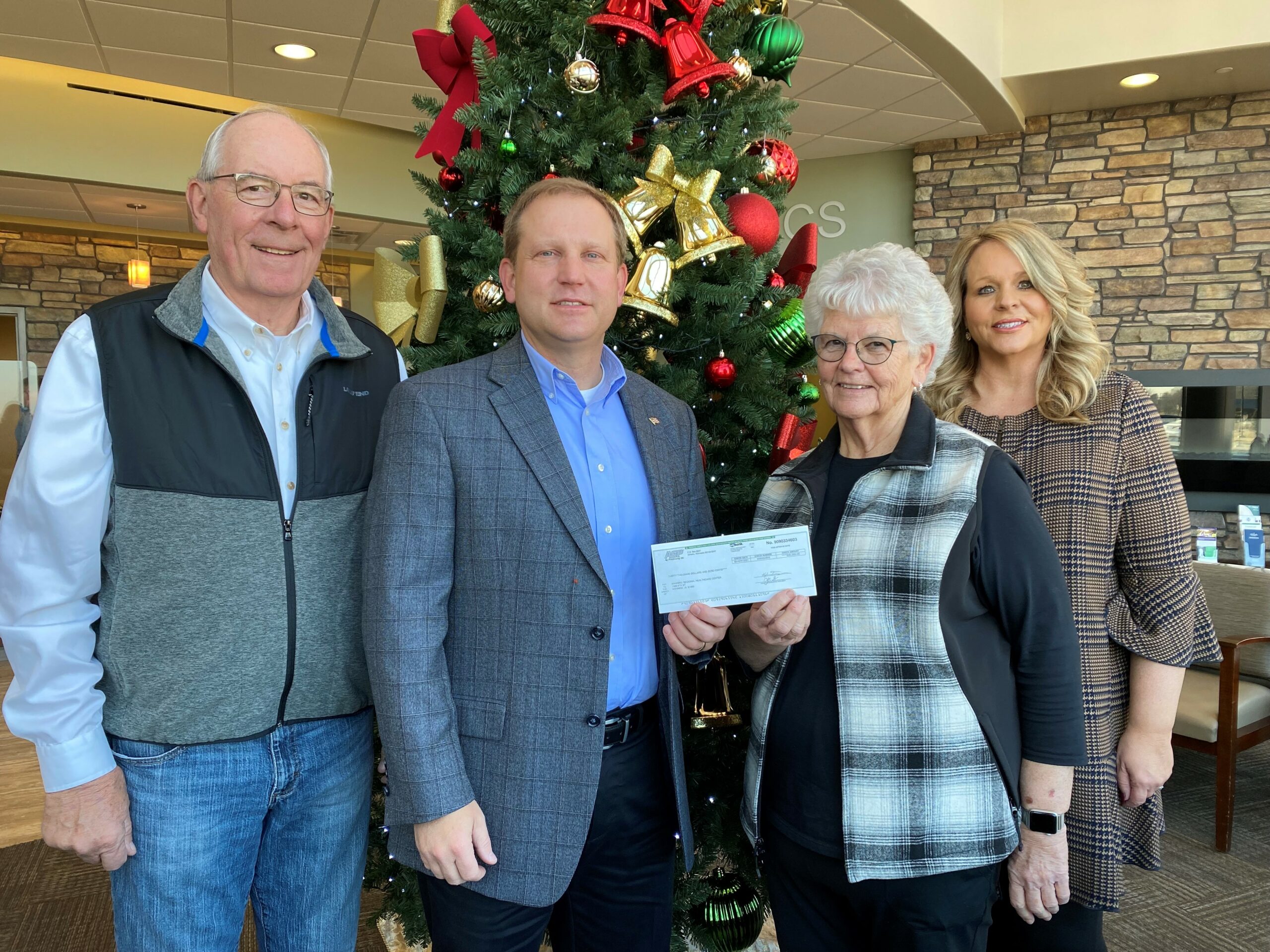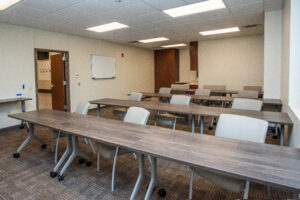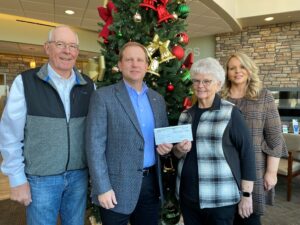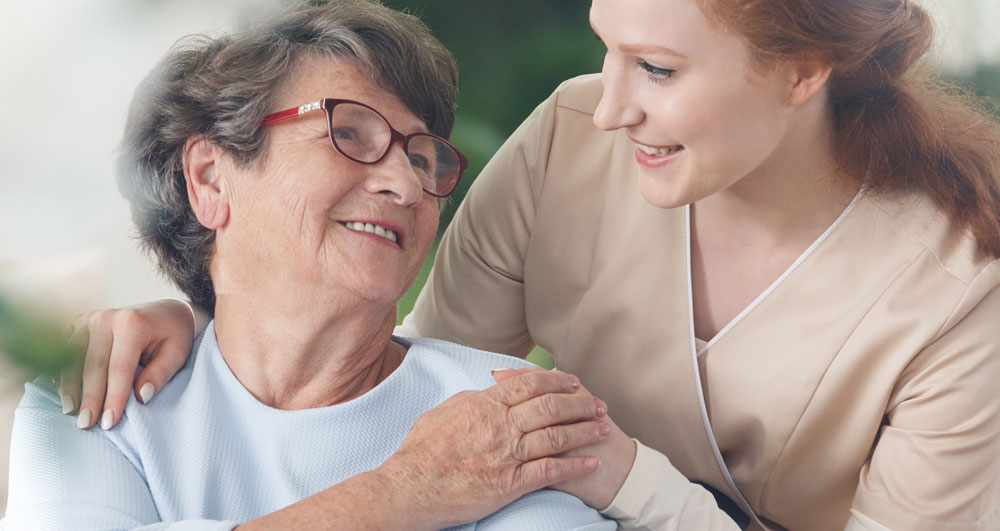“We are grateful for the many financial contributions, large and small, that have made a significant impact on the services offered here at Manning Regional Healthcare Center,” shared MRHC CEO, Linn Block, RN, BSN, MHA. “We are proud to be able to recognize those within the hospital with the Trees of Hope donor wall display.”
The recent installation of the donor wall, located near the MRHC surgery waiting room, represents the contributions made during the hospital’s recent capital campaign, Project Forward. In total there were 83 donors who contributed nearly $700,000. As donations continue to be made to the hospital, additional leaves will be added throughout the year.
“We recognize that it takes many different funding sources and committed citizens to ensure that we can provide the high-quality care and variety of health care services that we offer here at MRHC,” said Block. “One of the organizations that has made a significant impact over time has been the hospital Auxiliary, and they have lots to celebrate this year.”
Auxiliary Surpasses $300,000 in Contributions
While membership is only $10/person, the total contributions from the Auxiliary to Manning Regional Healthcare Center over the past 47 years has now surpassed $300,000. Since 1975, the Auxiliary, on average, has maintained an annual membership of 200 members.
“While some people can afford to make larger donations, others can only make smaller, incremental donations over time,” shared Janet Myer, hospital Auxiliary president. “It’s incredible how those smaller donations add up, though.”
Some of the more notable donations Myer recalls over the years were furnishing the birthing room at the old hospital, providing a van for the Plaza, creating a beauty shop at the Plaza, and getting furniture in the Recovery Center.
“Although some of these items are no longer in use, one thing that remains steady is our commitment to keeping quality healthcare available here in Manning,” said Myer.
As the needs of the community and the hospital evolve, so do the projects that the Auxiliary funds. “Each year we ask MRHC departments for a wish list and try to spread the support throughout the whole facility,” emphasized Myer.
The Auxiliary has had to adapt to new ways of funding over the years as well. For many years, the Auxiliary hosted a snack bar at the Plaza. The Auxiliary now hosts the snack bar at the Manning Public Library from 2-4pm every Monday through Friday.
“We invite the whole community to take advantage of the homemade snacks while visiting the beautiful new library,” encouraged Myer. “It’s an easy way to show your support and get a sweet treat as well!”
The Auxiliary also hosts multiple bake sales throughout the year. These have been held in conjunction with the Manning Farmer’s Market twice per summer since the pandemic. Annual bake sales are also held before Easter and Christmas.
The Auxiliary’s final bake sale of 2022 will feature Christmas goodies on Saturday December 3rd on Main Street in Manning.
Continued Financial Need
While Medicare/Medicaid reimbursements continue to be a challenge for rural hospitals, community members have shown increased financial support to ensure high-quality healthcare services are available close to home.
“We are grateful for the increased financial support to our hospital,” shared Block. “When people set foot in our hospital, they are surprised and impressed by the beautiful facility and quality of healthcare that is unexpected from a small-town hospital.”
There are many ways to give to support the hospital, both great and small. For long-term financial support of the hospital, please contact Linn Block at (712) 655-2072 or email linn.block@mrhcia.com.
